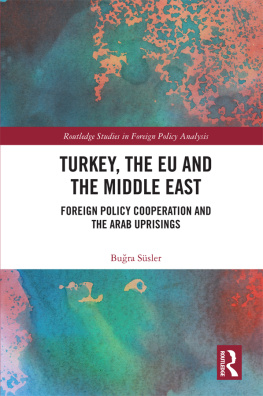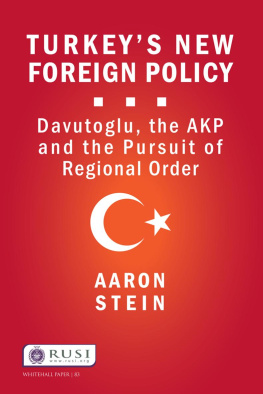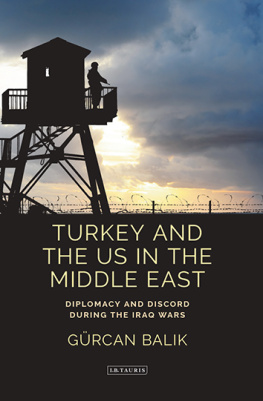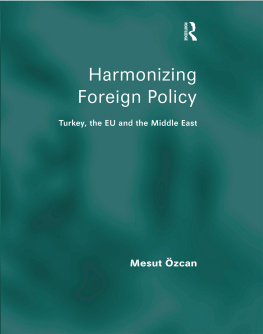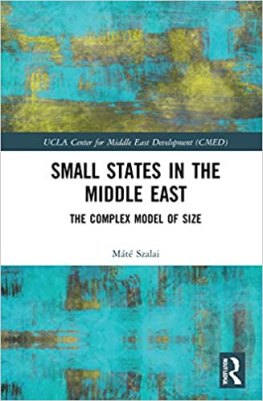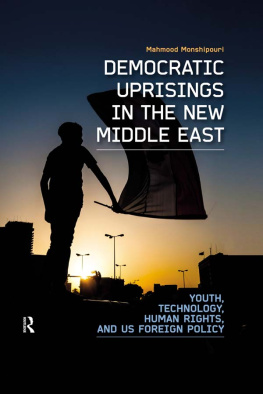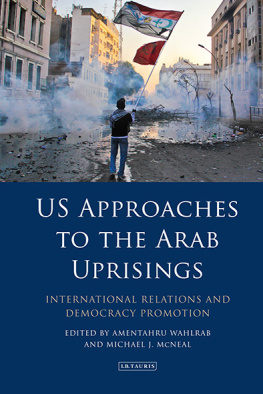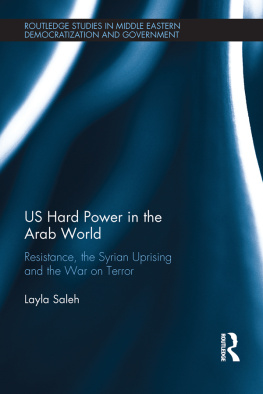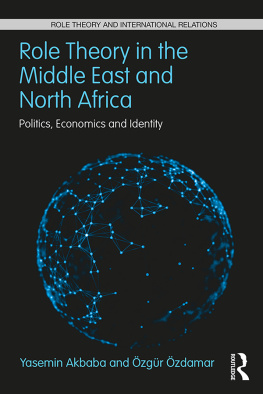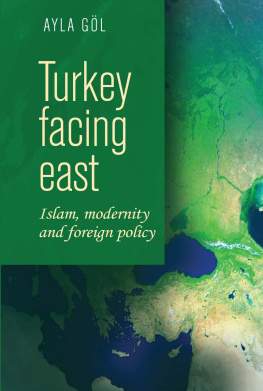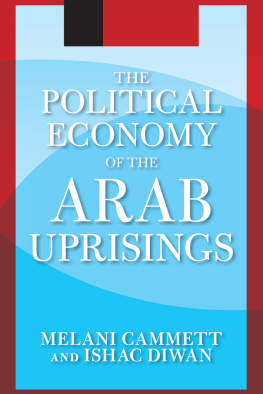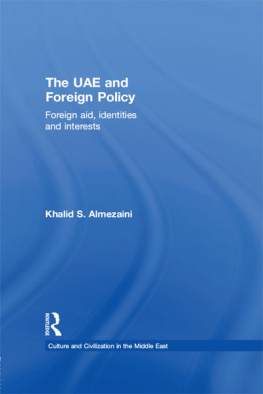Turkey, the EU and the Middle East
This book focuses on the dynamics of Turkeys relationship with Europe in the context of the Arab Spring and analyses Turkish behaviour vis--vis foreign policy cooperation with the EU.
Ssler explains the complexity of Turkey-EU relations by looking beyond membership negotiations and examines informal foreign policy dialogue between Turkish and EU officials. The book discusses the reactions of the Turkish government to the uprisings in Libya, Syria, and Egypt and cooperative opportunities between Turkey and the EU. The analysis finds that although cooperation varies across cases, foreign policy dialogue has become a main driver of the Turkey-EU relationship. A counter-intuitive finding of the research is that the EU has often been the actor seeking Turkeys cooperation, rather than the other way around, clearly challenging the original power asymmetry between Turkey and the EU.
Based on interviews with diplomats and policy makers and extensive documentary research, this book will be of interest to political scientists, students, policy makers and researchers focusing on Turkish foreign policy and Turkey-EU relations. This book is also about exploring inventive ways of maintaining a complex working partnership with the EU and will be of interest to scholars working on the EUs relationship with outsiders.
Bura Ssler is a Visiting Postdoctoral Fellow at the LSE IDEAS, the foreign policy think tank of the London School of Economics and Political Science (LSE) and a Teaching Fellow at the University College London (UCL) Department of Political Science. His research focuses on foreign policy analysis, international cooperation, and global conflicts. He holds a PhD in International Relations and an MSc in Politics and Government in the European Union from the LSE as well as a BSc in Politics from the University of Bristol.
Routledge Studies in Foreign Policy Analysis
Series Editors:
Christopher Alden
London School of Economics, UK
Amnon Aran
City University of London, UK
The Foreign Policy Analysis (FPA) series covers a broad intellectual canvass, which brings together scholars of International Relations, Area Studies, Politics, and other related fields such as Political Psychology and Administrative Studies. It also engages with a wide range of empirical issues: from the study of the foreign policy of individual countries, to specific aspects of foreign policy such as economic diplomacy or bureaucratic politics, through germane theoretical issues such as rationality and foreign policy. The Series aims to specialize in FPA as well as appeal to the wider community of scholars within International Relations, related fields, and amongst practitioners. As such the range of topics covered by the Series includes, but is not be limited to, foreign policy decision-making; the foreign policy of individual states and non-state actors. In addition it will include analytical aspects of foreign policy, for instance, the role of domestic factors; political parties; elites. Theoretical issue-areas that advance the study of foreign policy analysis, for example, FPA and Gender, Critical FPA, FPA in a new media landscape, Ethics and FPA, are also be welcomed.
Colombian Agency and the Making of US Foreign Policy
Intervention by Invitation
Alvaro Mendez
Power, Perception and Foreign Policymaking
US and EU Responses to the Rise of China
Scott Brown
Intercultural Dialogue in EU Foreign Policy
The Case of the Mediterranean from the End of the Cold War to the Arab Uprisings
Pietro De Perini
Americas Allies and the Decline of US Hegemony
Edited by Jonathan Paquin and Justin Massie
Turkey, the EU and the Middle East
Foreign Policy Cooperation and the Arab Uprisings
Bura Ssler
www.routledge.com/series/RSIHR
Turkey, the EU and the Middle East
Foreign Policy Cooperation and the Arab Uprisings
Bura Ssler
First published 2020
by Routledge
2 Park Square, Milton Park, Abingdon, Oxon OX14 4RN
and by Routledge
52 Vanderbilt Avenue, New York, NY 10017
Routledge is an imprint of the Taylor & Francis Group, an informa business
2020 Bura Ssler
The right of Bura Ssler to be identified as author of this work has been asserted by him in accordance with sections 77 and 78 of the Copyright, Designs and Patents Act 1988.
All rights reserved. No part of this book may be reprinted or reproduced or utilised in any form or by any electronic, mechanical, or other means, now known or hereafter invented, including photocopying and recording, or in any information storage or retrieval system, without permission in writing from the publishers.
Trademark notice: Product or corporate names may be trademarks or registered trademarks, and are used only for identification and explanation without intent to infringe.
British Library Cataloguing-in-Publication Data
A catalogue record for this book is available from the British Library
Library of Congress Cataloging-in-Publication Data
Names: Susler, Bugra, author.
Title: Turkey, the EU and the Middle East : foreign policy cooperation and the Arab uprisings / Bugra Susler.
Description: First edition. | New York : Routledge, 2020. | Series: Routledge studies in foreign policy analysis | Includes bibliographical references and index.
Identifiers: LCCN 2019050838 (print) | LCCN 2019050839 (ebook) | ISBN 9780367236137 (hardback) | ISBN 9780429280788 (ebook)
Subjects: LCSH: TurkeyForeign relationsEuropean Union countries. | European Union countriesForeign relationsTurkey. | TurkeyForeign relationsMiddle East. | Arab Spring, 2010Influence. | Middle EastForeign relationsTurkey.
Classification: LCC DR479.E85 S87 2020 (print) | LCC DR479.E85 (ebook) | DDC 327.56104dc23
LC record available at https://lccn.loc.gov/2019050838
LC ebook record available at https://lccn.loc.gov/2019050839
ISBN: 978-0-367-23613-7 (hbk)
ISBN: 978-0-429-28078-8 (ebk)
Typeset in Times New Roman
by Apex CoVantage, LLC
To My Parents
This book is a product of my research at the London School of Economics and Political Science (LSE), and I would like to express my gratitude to everyone who contributed to the conception, development, and completion of this project.
First and foremost, I would like to thank my publisher. The Routledge team has been very supportive in the publication process. Special thanks to editors Rob Sorsby and Claire Maloney, the series editors Professors Amnon Aran and Chris Alden, and the two anonymous reviewers who provided very useful feedback on my work.
I am grateful to Professor Chris Alden for his invaluable support and motivation. I have learned a lot from him and it has been a privilege to work with him.
I also owe special thanks to Dr Ulrich Sedelmeier for his guidance and feedback as well as to Professor Ziya ni for his contributions.
I would like to express my gratitude for the financial support I received from the LSE the LSE PhD Studentship and the LSE Middle East Centre Emirates PhD Award.
I completed the manuscript as a visiting postdoctoral fellow at the LSE IDEAS, and I would like to thank Professor Christopher Coker and Dr Emilia Knight for their support.


